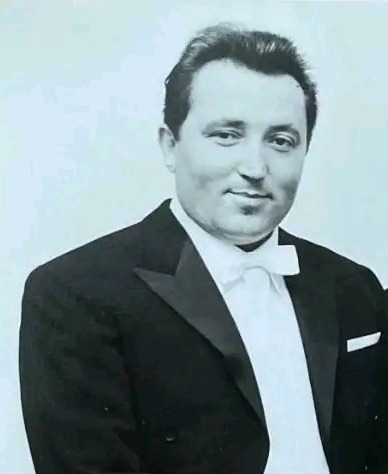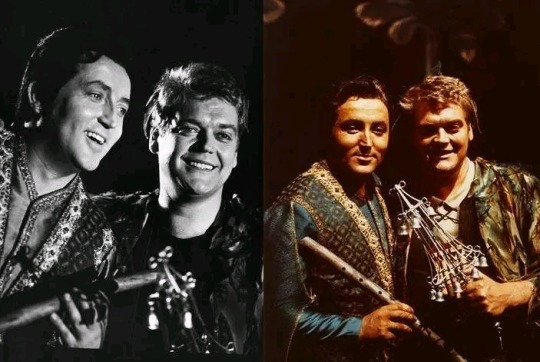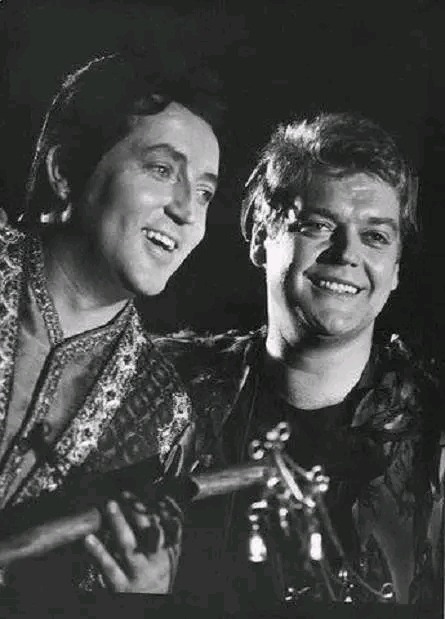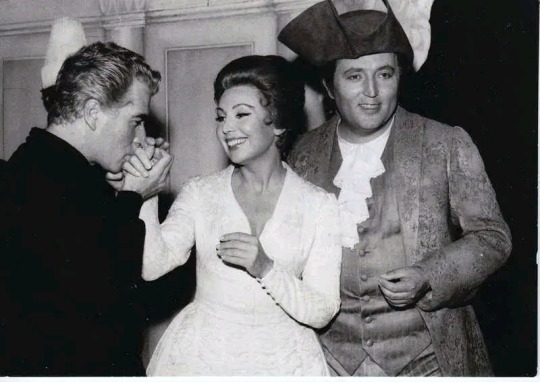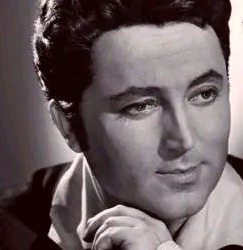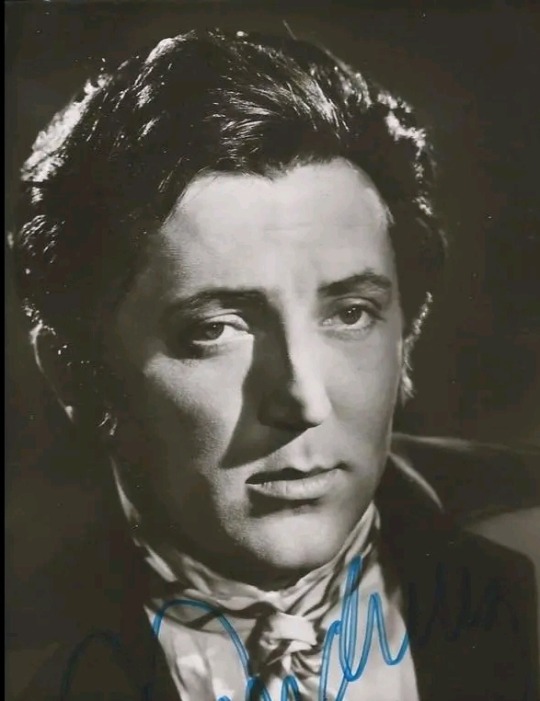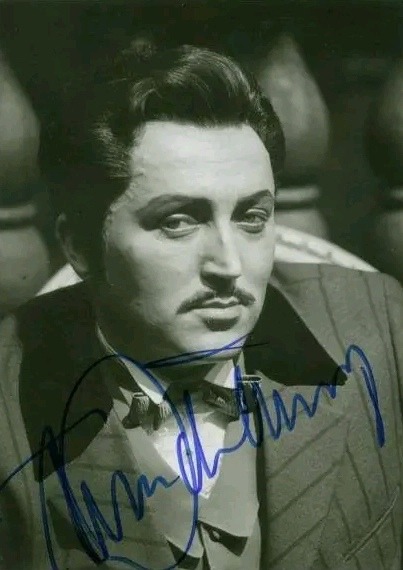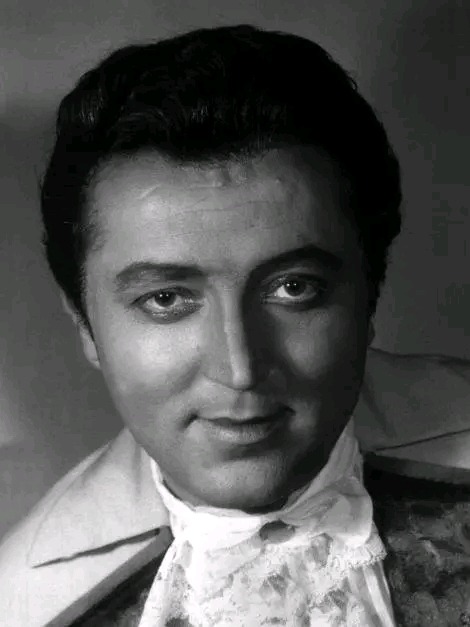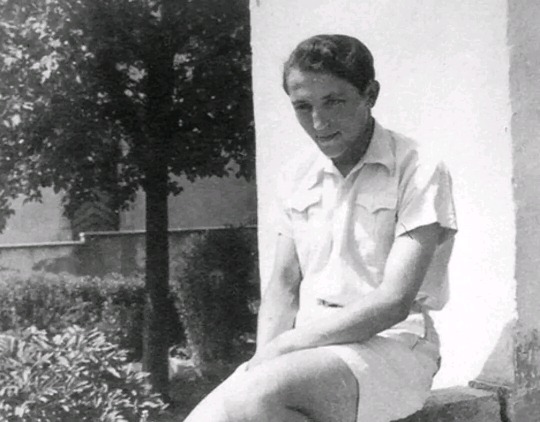#fritz wunderlich
Text
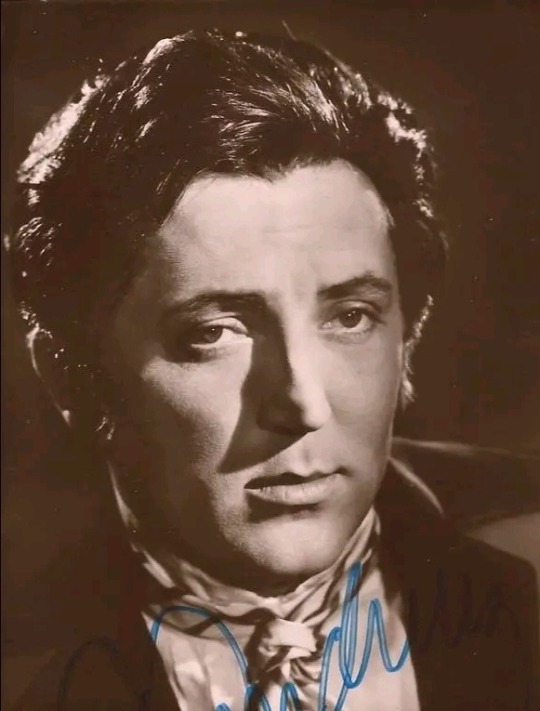
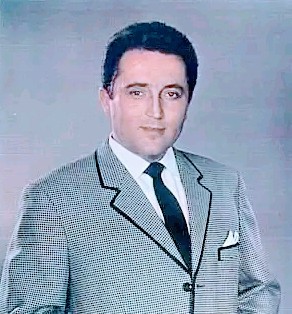
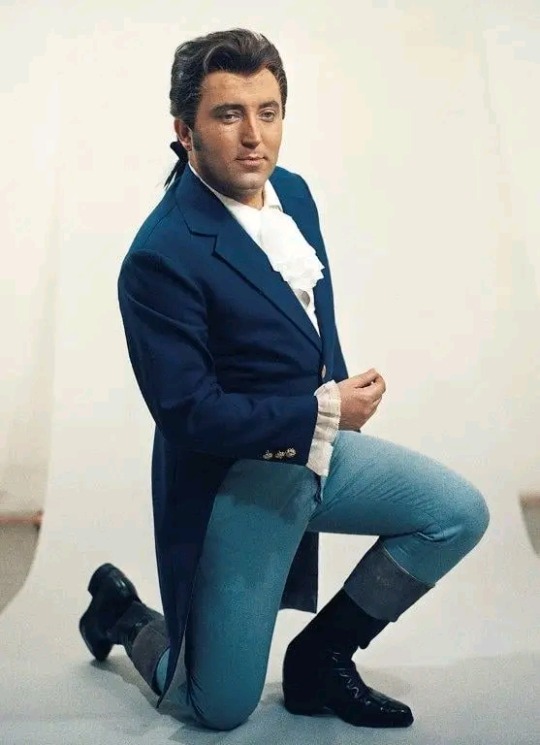
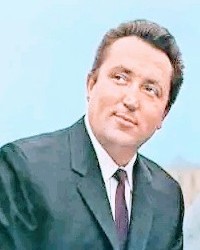


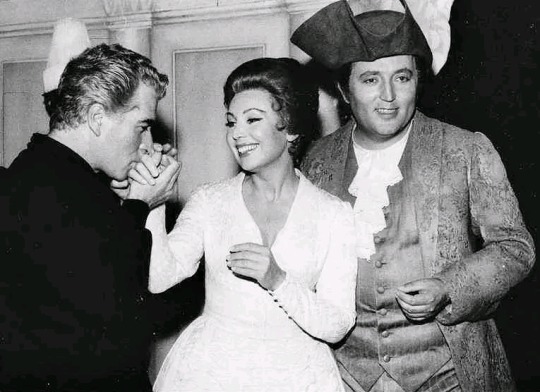
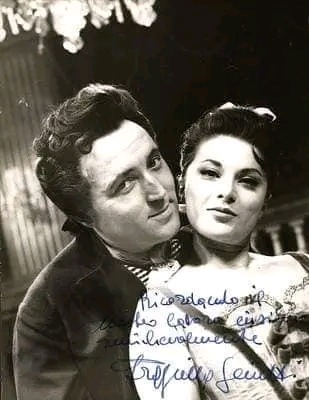
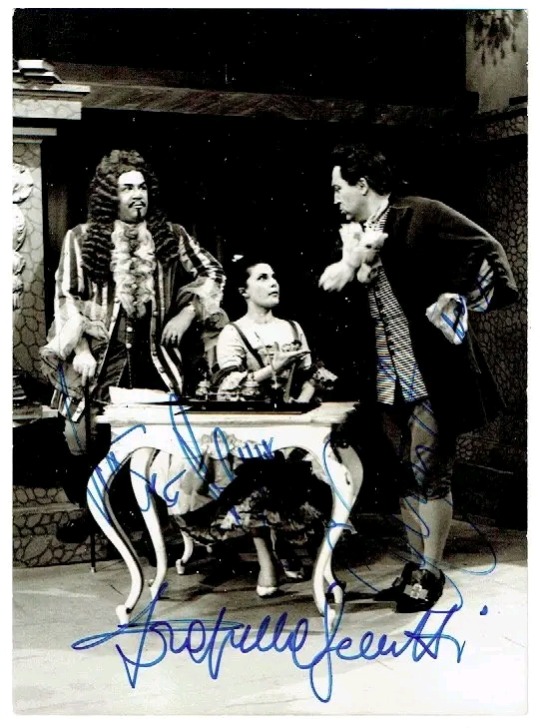
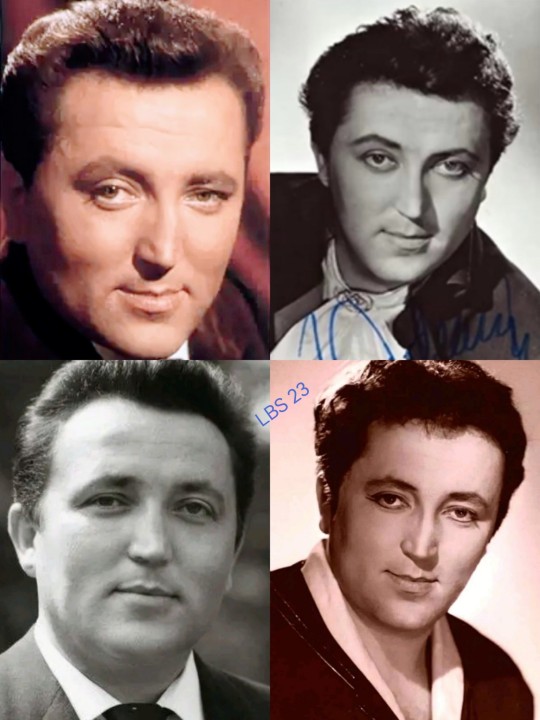
Imm 10: Collage by Luz Butron Soprano
9 notes
·
View notes
Text
Shakespeariana - XXXV
Beauty and kindness
Franz Schubert (1797 - 1828): An Silvia, Lied for voice and piano op. 106 n. 4, D 891 (1826); lyrics by William Shakespeare (from The Two Gentlemen of Verona, act 4, scene 2), German translation by Eduard von Bauernfeld. Fritz Wunderlich, tenor; Hubert Giesen, piano.
Was ist Silvia, saget an,
Dass sie die weite Flur preist?
Schön und zart seh’ ich sie nah’n,
Auf Himmels…
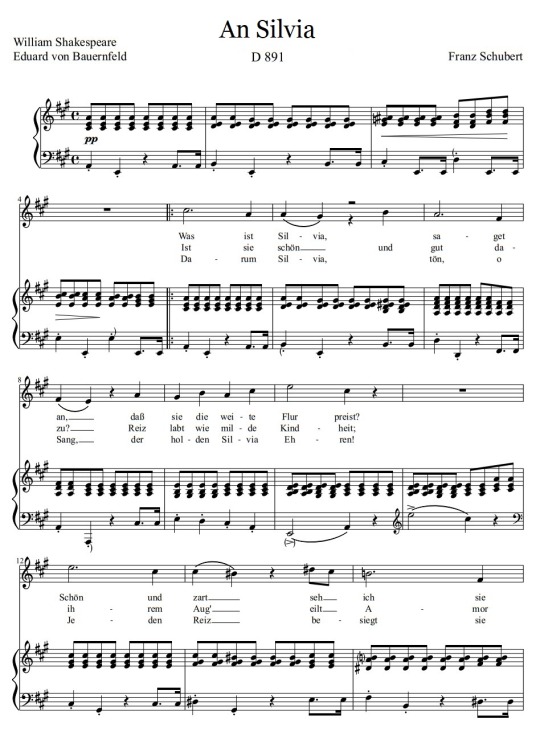
View On WordPress
2 notes
·
View notes
Text
Fancasts for "An Eternal Crown: The Opera"
I'm being silly now and imagining what it would be like if my gender-bent Magic Flute retelling, An Eternal Crown, were adapted as an opera itself. It could be a "jukebox opera," consisting partly of music from The Magic Flute transposed, and partly of other music – for example, some of Handel's florid bass arias to take the place of the Queen of the Night's arias for King Vorteyo.
Sarisa and Zeran's voices I imagine as essentially Pamina's and Tamino's, since they are those two in reverse: a lyric soprano and a light lyric tenor. Lorikeet I can't help but imagine as a lyric coloratura. Vorteyo would be a bass, Alesta and Imara both motherly mezzos, Kimzi one of those roles like Zerlina that can be sung either by a soprano or a light mezzo, and Robin a lyric baritone. The Three Warriors I picture as a "heroic" Italian-style spinto tenor, and a baritone and bass in more of a Mozartean vein.
These are some of the singers I think might have been good in the roles in different eras:
An Eternal Crown: The Opera, circa 1960-1965
Sarisa: Irmgard Seefried or Gundula Janowitz
Zeran: Fritz Wunderlich or Nicolai Gedda
Lorikeet: Lucia Popp
King Vorteyo: Cesare Siepi
Alesta: Maureen Forrester
Kimzi: Teresa Berganza or Graziella Sciutti
Robin: Hermann Prey or Theodor Uppman
Imara: Marga Höffgen
Three Warriors: Giuseppe di Stefano, Eberhard Wächter, Fernando Corena
An Eternal Crown: The Opera, circa 1980-1985
Sarisa: Ileana Cotrubas
Zeran: Francisco Araiza or Peter Schreier
Lorikeet: Kathleen Battle
King Vorteyo: James Morris
Alesta: Marilyn Horne
Kimzi: Teresa Stratas
Robin: Håkan Hagegård, or a young Alessandro Corbelli
Imara: Janet Baker
Three Warriors: José Carreras, Thomas Allen, Samuel Ramey
An Eternal Crown: The Opera, circa 2000-2005
Sarisa: Ana María Martínez or Dorothea Röschmann
Zeran: Charles Castronovo
Lorikeet: Diana Damrau
King Vorteyo: Samuel Ramey
Alesta: Denyce Graves
Kimzi: Cecilia Bartoli
Robin: Rolando Villazón (it could have been an early light baritone foray for him)
Imara: Stephanie Blythe
Three Warriors: José Cura, Simon Keenlyside, Ildebrando d’Arcangelo
I'll think of more in the future.
7 notes
·
View notes
Text
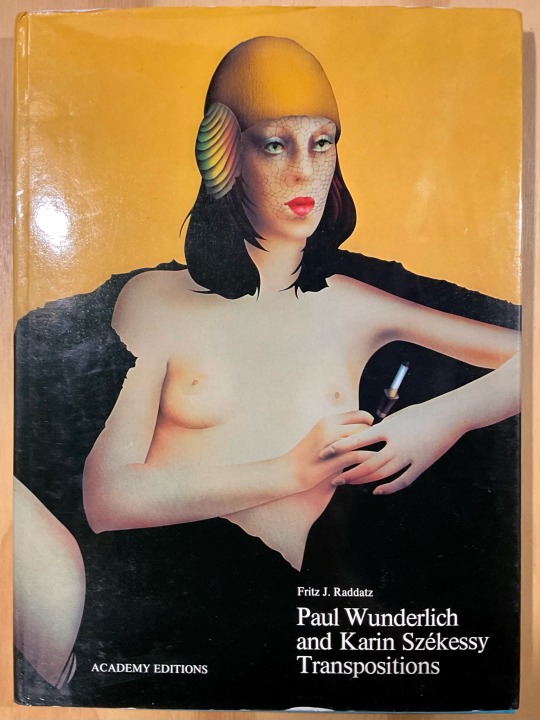

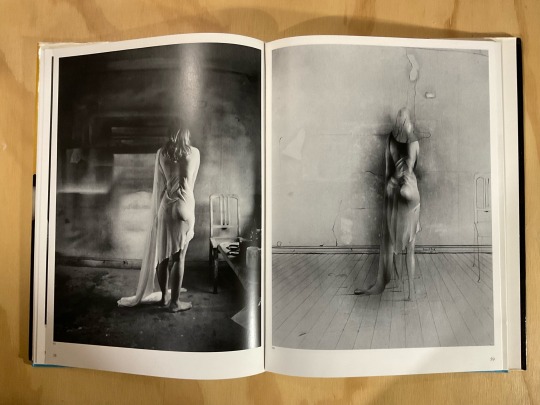


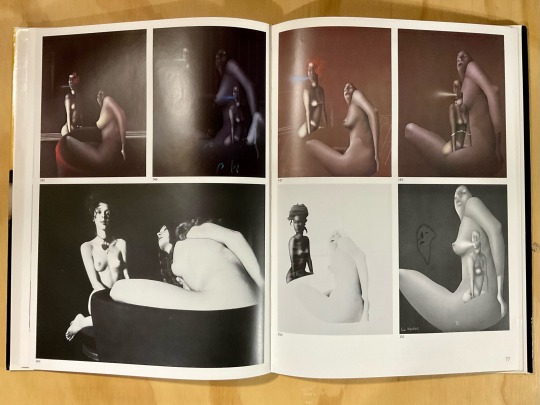
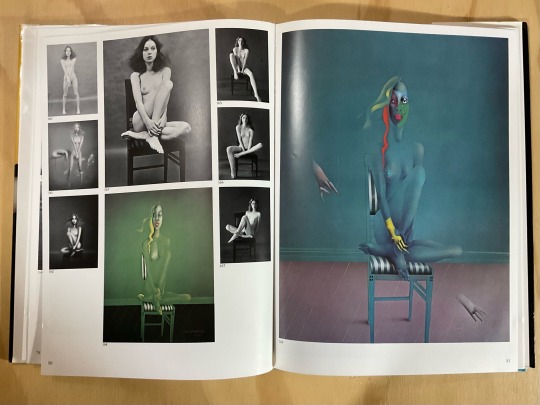
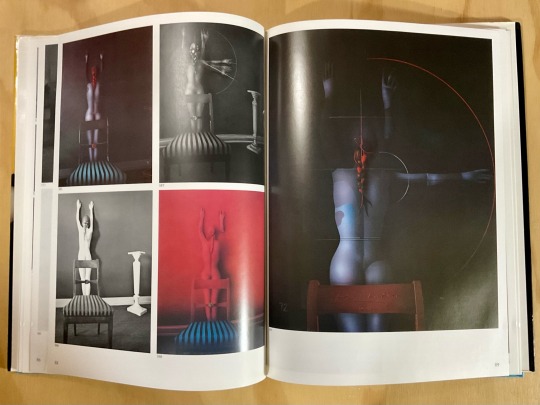
Fritz J. Raddatz, “Paul Wunderlich and Karin Székessy / Transpositions” (London: Academy Editions, 1980). Have had this in my collection of art books for a while now. Packed with photos by Székessy of herself & others along w/ works by Wunderlich based on her photos. Great for anyone interested in the creative use of photography as reference, but Székessy’s photos easily hold their own with her husband’s paintings, lithographs, etc. Recommended!
23 notes
·
View notes
Text
youtube
Friedrich Flotow (1812-1883) - Martha: Ach so fromm
Conductor: Berislav Klobucar
Orchestra: Berliner Symphoniker
Vocals: Fritz Wunderlich
3 notes
·
View notes
Text
„Die Welt, obgleich sie wunderlich, ist gut genug für Dich und mich.“


A beautifully arranged deluxe edition of the humorous work of German poet and illustrator Wilhelm Busch (1832 - 1908), can be roughly translated as “The Pearls of German Humour- Collected poems with 400 original illustrations by Wilhelm Busch”. Published around 1910 by Dr. Rudolf Will in Berlin, book design by Fritz Adolphy, the portrait of Busch an etching by Prof. Wilhelm Hecht, inspired by the painting of Franz von Lenbach.


„Wer der Gerechtigkeit folgen will durch dick und dünn, muss lange Stiefel haben.“

„Materie - Hartnäckigkeit der kleinsten Lebewesen.“
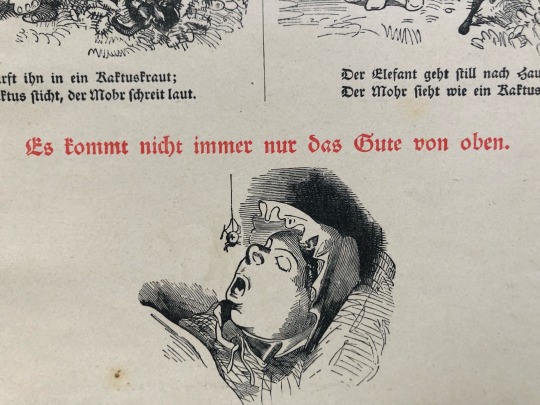
„In Ängsten findet manches statt, was sonst nicht stattgefunden hat.“
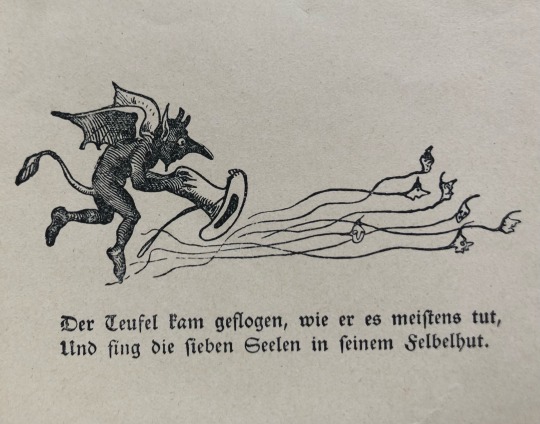
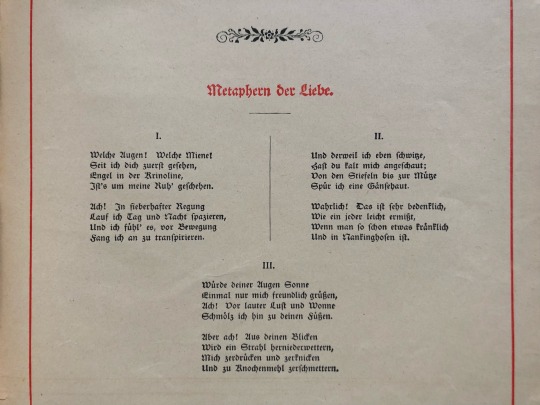
„Die Summe unseres Lebens sind die Stunden, in denen wir liebten.“

Busch’ illustration are still so innovative and provoking, while playing with the bourgeois double moral standards and satirising any kind of contemporary life situations, that the core of human nature is unsurprisingly well presented and reminding us of the difficulties in realising the personal integrity, particularly when self-reflection is inhibited through characteristic weakness of any kind.
Laughing about us and our failures can break the inflexibility of the interpretive mechanism that is paralysing us, because expectations are often above or under the real circumstances. Laughing can help to flatten the sharp existential fears, that are restraining us to be capable of our deepest strength. Humour is the friend of the hungry and the forgotten, when soulache is simultaneously felt as a gift and burden, we laugh to shake off the scoria to feel light-hearted and tender-tongued again, because every oppressiveness shalt be overcome. And when a trauma shudders the built walls of protection, we will laugh with tears in our eyes, because this improvisation was another form of emotional imprisonments for the ashamed hider and we will allow the flames to crawl into our spiritual castle and in the rising of the madness our crown will shine even more marvellous and brilliant.
In hysterical fury the humour will help to tell apart virtue from vice, it won’t makes us feel that our life is a joke, but a tragicomedy - maybe without deus ex machina, but we still can interfere into the script and however the ending will be, the moments of up-lifting emotional moments can turn even black painted scenario into contentment, because we were not afraid to show our feelings and laugh, when life is overwhelming us.
When a person seems cheerful and merry, the most people do not know what kind of huge mental work was invested to appear in this happy way.
„Mancher kann nicht aus dem Fenster hinausdenken.“
Every individual has its own ways and strategies to deal with difficulties in strokes of fate, but it is indeed an old wisdom to accept laughing as a motivating therapy and possibility to enjoy life as a chance to share love and warmth. With a smile and patience so many limits can be exceed, so many wonderful segments of ourselves can be found, so many wonderful people can come together in harmony, because we have found inner peace by transforming the shadows into light.
Thanks to all motivating mentors, who are undeterred fulfilling the educational mission without expecting earthly goods or honours, because the intercession in form of humour is more than a handout.
„Metaphysik und Worte! Das ist gerade so als wenn man einem die Lehre von der Erbsünde auf der Flöte vorspielte!“
#literature#book cover#bookworm#book#antiquarian book#antiquarian#humour#the art of laughing#Wilhelm Busch#Max und Moritz#illustrated classic#illustration#19th century literature#satirist#satirical#satirical illustrations#German humour#motivation through laughing#happiness
0 notes
Video
youtube
Gustav Mahler, Das Lieder von der Erde.
Otto Klemperer, director
Christa Ludwig, mezzosoprano
Fritz Wunderlich, tenor
Versión favorita para recuperar hacerme de un poquito de aliento.
4 notes
·
View notes
Text


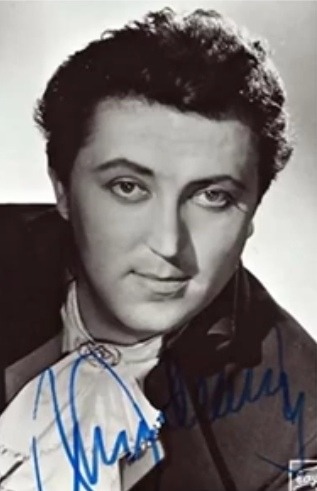
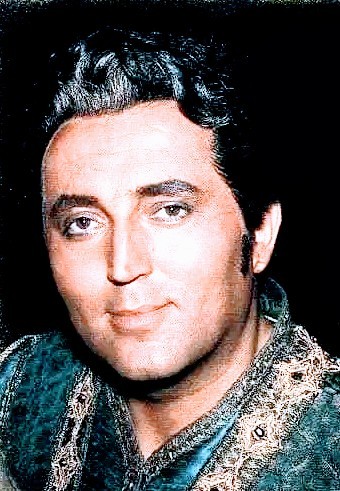
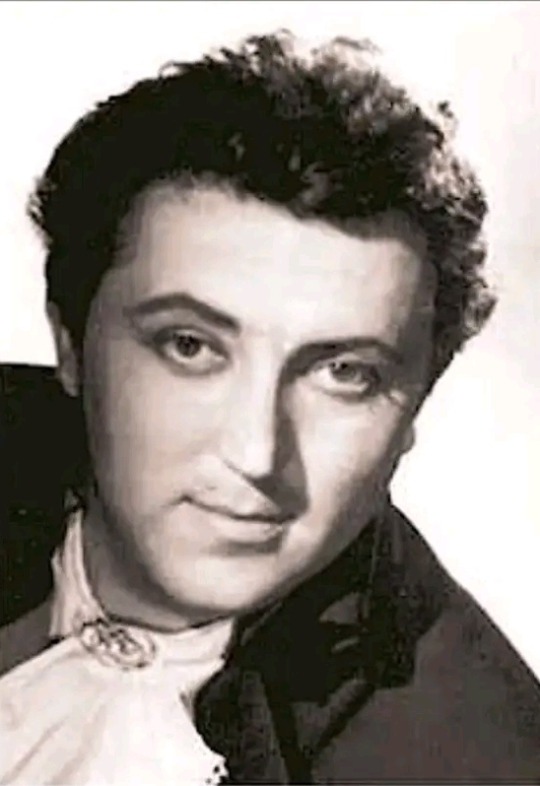

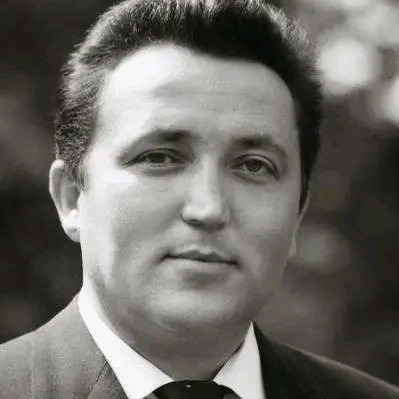
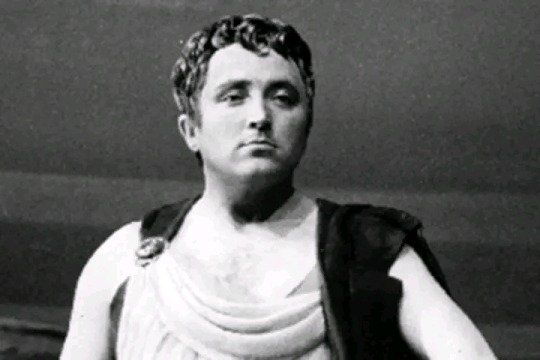
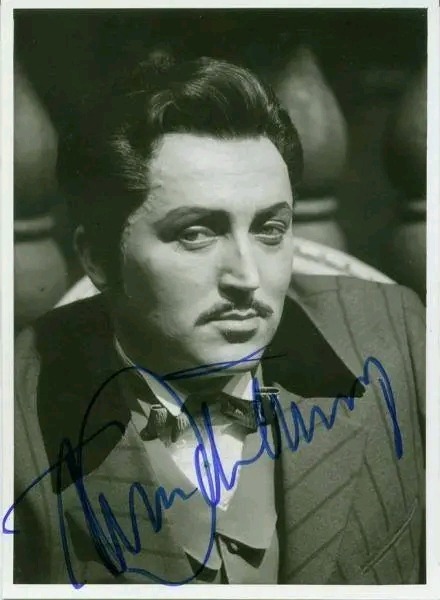
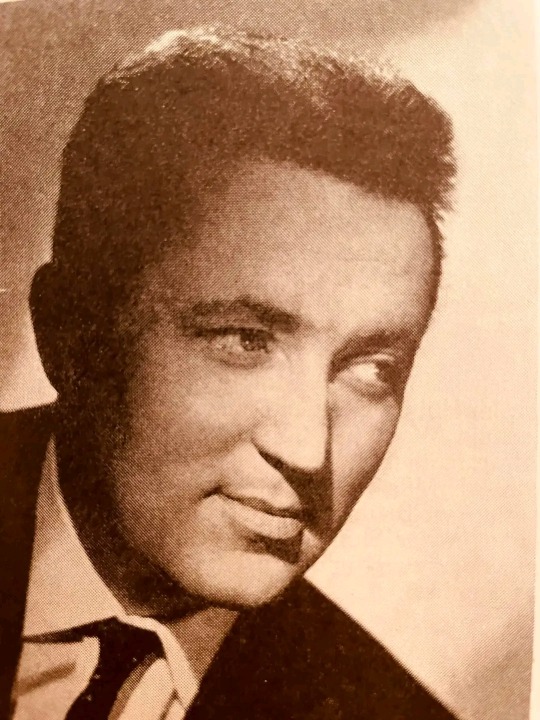
FRITZ WUNDERLICH 🇩🇪 🌹
7 notes
·
View notes
Text
Recommendation
Der Fliegende Holländer
Staatskapelle Berlin, conducted by Franz Konwitschny

Type: Audio recording (Studio)
Composer: Richard Wagner
Opera: Der Fliegende Holländer/The flying Dutchman
Year: 1962
Staatskapelle Berlin, conducted by Franz Konwitschny; with Gottlob Frick, Marianne Schech, Dietrich Fischer-Diskau, Sieglinde Wagner, Rudolf Schock and Fritz Wunderlich, Chorus of the Deutsche Staatsoper Berlin
Full review under the cut.
As some of you may know I’ve never been quite fond of the flying dutchman. I feel as if Wagner hadn’t found his style yet when he composed the Holländer, allthough I do enjoy the earlier opera, Rienzi. I feel like the Holländer lacks a red thread, something that keeps the opera together. I feel like you can’t lose yourself in this opera like you can in his other works. Individually the music is no doubt almost equally fascinating as his later works.
Franz Konwitschny and the Staatskapelle Berlin solve this problem. Under Konwitschny’s conducting the Holländer is a real entity, everything fits.
The phrasing and dynamics are also excellent and fitting.
I also loved the chorus (Chorus of the german state opera Berlin), you can hear individual voices everyone of them outstanding, the chorus sounds very alive and especially the ladies blew me away.
Now, let’s get to the soloists.
Senta - Marianne Schech
I only heard her as Venus before and found her a little too light for that role. Now as Senta she was nearly perfect. Many Sopranos tend to sound quite piercing at the high notes, she kept a warm sound throughout the whole opera and was incredibly pleasant to listen to. Strong voice and the right emotions at the right places.
Also shoutout to her diction, I was able to understand every single word.
Erik - Rudolf Schock
@swanfloatieknight and I sometimes make fun of this poor character and say Erik is too weak. And when I had to write a review about the performance I attendet with my class I straight up forgot him.
Rudolf Schock makes it impossible to forget about him. He’s your typical Heldentenor, full, dark, strong voice. He sings Erik as emotional, loving and worried, but also gives him some backbone. He doesn’t leave Senta because he has no chance or can’t handle her anymore, he doesn’t want it anymore. He doesn’t want to watch her swoon over some mythical ghost captain anymore.
Holländer - Dietrich Fischer-Diskau
First of - I love is voice. It is full and dark, but not heavy. It’s like a deep and yet floating sound which never fails to amaze me. This quality is actually really fitting for a cursed, ghostly man like the flying dutchman.
I loved his Wolfram von Eschenbach, I might review this recording at another time, but this is about the Holländer.
What I really enjoyed in Rudolf Schock’s performance bothers me with him: He seemed a little too strong, lacked disappointment and other softer emotions. Of course this is a matter of interpretation, yet as someone who loves the more vulnerable Holländers and as someone who knows Fischer-Diskau can sing those emotions I was a little disappointed.
Mary - Sieglinde Wagner
I can’t really say much to Mary, it’s too small of a role. She was nice, was rather angry at Senta than worried. At least that’s what her scolding sounded like. Also I love Sieglinde Wagner’s voice.
Daland - Gottlob Frick
Big love. Of course Daland isn’t the best dad, he more or less sells his daughter to the Holländer. This get’s a little lost in Frick’s interpretation, he sounds truly fatherly, like a good dad. His voice is fantastic, dark, full. He sounded really calm, some Dalands get a little overenthusiastic at “Mögst du, mein Kind”, not him. Really pleasant to listen to him. Voice-wise one of my favourite bass singers.
Steuermann - Fritz Wunderlich
His Steuermann is exactly what you’d expect from the great Fritz Wunderlich - natural, emotional, pure. In this recording his voice also sounds quite dramatic.
I admit that every time I see his name on a Wagner recording there’s a tiny bit of hope he actually sings the leading tenor, which of course is never the case since this astounding singer died way to early.
In this regard hearing him as the Steuermann does not only amaze me but also makes me sad since, in my opinion, you can hear that he was ready to tackle the big wagner roles already in 1962. He’d been such a great, maybe near perfect Lohengrin, an incredibly raw and a captivating Parsifal, a fascinating Erik. It is a tragedy that never fails to sadden me that he was forced to leave earth so early and in such a sudden, let’s call it what it is, frustrating way.
All in all this recording managed to do what a live performance did not: It made me love the first of the ten works performed at the Bayreuth Festival, which is why I warmly recommend you this outstanding recording.
#recording#recommendation#richard wagner#der fliegende holländer#the flying dutchman#fritz wunderlich#franz konwitschny#gottlob frick#marianne schech#dietrich fischer-diskau#sieglinde wagner#rudolf schock#deutsche staatsoper berlin#staatskapelle berlin
6 notes
·
View notes
Text
Nicht diese Küsse
Ludwig van Beethoven (c16 dicembre 1770 - 1827): Der Kuß (Il bacio), arietta per voce e pianoforte op. 128 (1822) su testo di Christian Felix Weisse. Fritz Wunderlich, tenore; Hubert Giesen, pianoforte (in concerto, Festival di Salisburgo 1965).
Ich war bei Chloen ganz allein,
Und küssen wollt’ ich sie;
Jedoch sie sprach,
Sie würde schrein:
Es sei vergebne Müh’.
Ich wagt’ es doch und küßte…
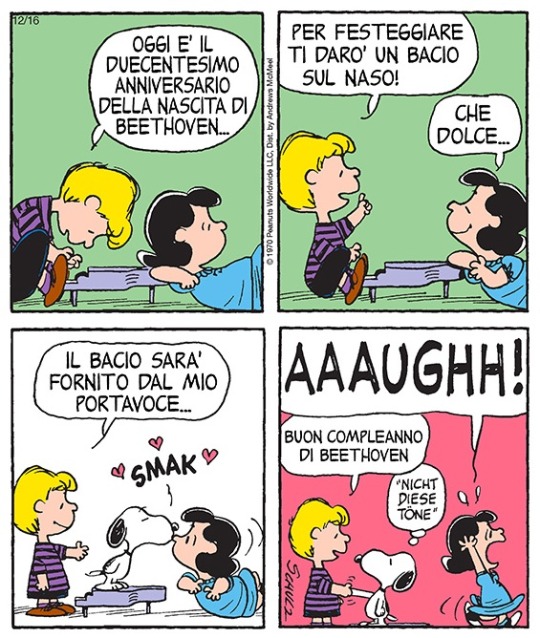
View On WordPress
0 notes
Text
Character ask: Tamino (The Magic Flute)
No one sent me this ask, I just felt like writing it.
@ariel-seagull-wings, @leporellian
Favorite thing about them: His love for Pamina and the beauty, warmth, and ardor of the music with which he expresses it. I also like productions that make him less of a stalwart paragon and highlight his youthful naiveté and coming-of-age journey.
Least favorite thing about them: The degree of cold sternness he gains as a follower of Sarastro in Act II, of which poor Pamina and Papageno are on the receiving end. Also (and relatedly), his parroting the priests' misogyny in the Act II quintet with Papageno and the Three Ladies.
Three things I have in common with them:
*I can be passionate and hot-blooded.
*I tend to be very trusting.
*I sometimes blindly follow other people's instructions.
Three things I don't have in common with them:
*I'm not royalty.
*Where courage is concerned, I'm more like Papageno.
*I'm female and I don't consider "manhood" an ideal.
Favorite line: The text of "Dies Bildni ist bezauberndt schön."
brOTP: Sarastro and his priests; maybe Papageno too, but only in productions that let him be warmer toward him and less aloof and impatient than he sometimes comes across.
OTP: Pamina.
nOTP: The Queen of the Night.
Random headcanon: When he eventually rules as a "wise monarch" (whether as Sarastro's successor, or of his own father's empire, or however you think it will happen), Pamina will be his equal partner and co-ruler, but her role will chiefly be spiritual and philosophical leadership, while Tamino's will be worldly/political leadership. In effect, they'll both be heirs to Sarastro, but Tamino will embody the "king" aspect of Sarastro's style of ruling, while Pamina embodies the "priest" aspect.
Unpopular opinion: I'm not sure if this is unpopular, but... If the tenor in the role stands like a statue during Pamina's "Ach, ich fühl's," without conveying through facial expressions and body language that Pamina's anguish is breaking his heart, and if he does nothing to express his pain and remorse after she leaves (e.g. starting to run after her only to sadly restrain himself, collapsing to the floor, and/or breaking down in tears), he had better have a magnificent voice, or else he doesn't belong on the stage.
Song I associate with them:
"Dies Bildnis ist bezauberndt schön"
youtube
"Wie stark ist nicht dein Zauberton"
youtube
Favorite picture of them:
Georg Maikl, early 20th century.
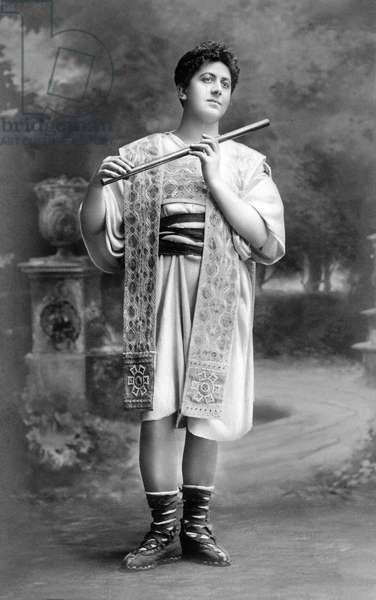
Fritz Wunderlich, 1960s.
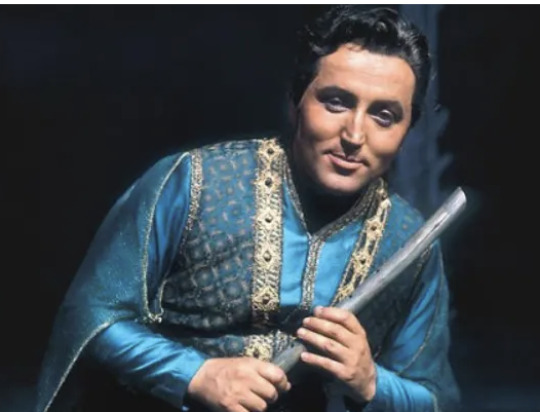
Josef Köstlinger, Ingmar Bergman film, 1975.
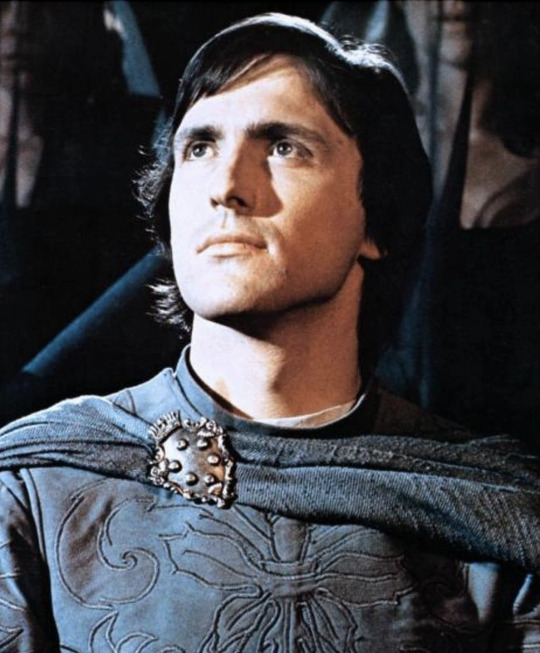
Unknown tenor (I just love how innocent and happy he looks, and I love the elegant animal costumes).
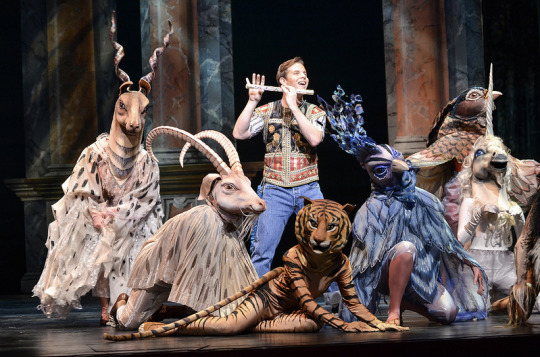
Michael Schade with Andrea Rost as Pamina, LA Opera, 2002.

Joshua Kohl, Sarasota Opera, 2010.

John Tessier, Seattle Opera, 2011.
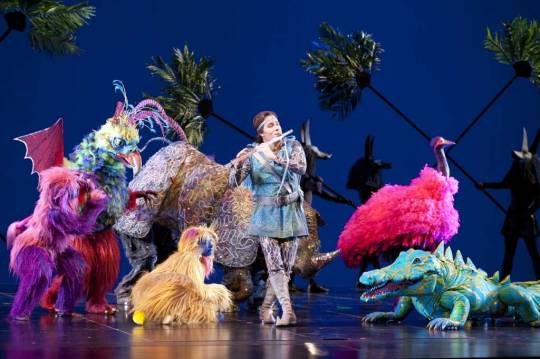
Mhlekazi Andy Mosiea in the production by South Africa's Isango Ensemble, 2014.

Alek Shrader, Metropolitan Opera, 2014.
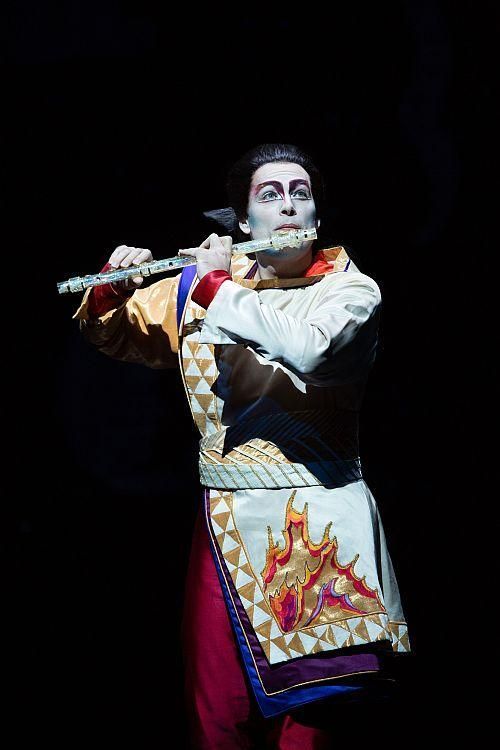
Pasqual Charbonneau, Opéra de Québec, 2018.
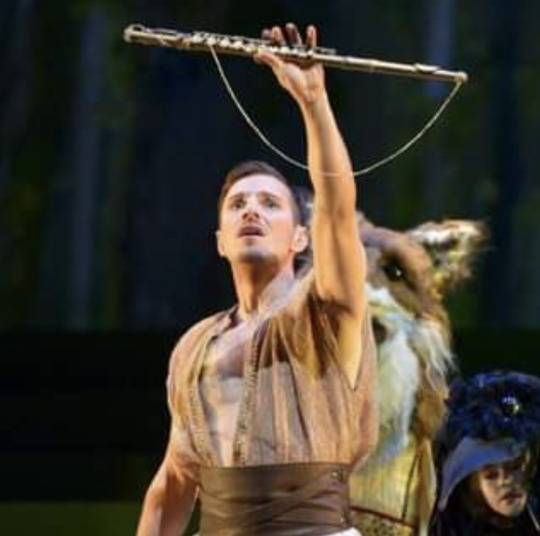
#character ask#opera#the magic flute#die zauberflöte#tamino#wolfgang amadeus mozart#ask game#fictional characters#fictional character ask
16 notes
·
View notes
Video
youtube
Fritz Wunderlich - Lebe wohl, mein flandrisch’ Mädchen
Can you fall in love with a song?
#fritz wunderlich#opera#german#music#video#I love zar und zimmermann with all my heart and this is such a good rendition#I would also love to hear Kaufmann sing this
2 notes
·
View notes
Text
youtube
Wilhelm Kienzl (1857-1941) - Der Kuhreigen: Zu Strassburg auf der Schanz ·
Fritz Wunderlich &
Conductor: Alfons Rischner
Artist: Alfred Appenzeller
Artist: B. Samland
Artist: Fritz Wunderlich
Artist: H. Lindner
Artist: K. Robbert
Orchestra: Radio-Sinfonieorchester Stuttgart des SWR
Choir: Stuttgart Sudfunkchor
0 notes
Text
Proof That Anything Can Lead To A Youtube Comments War
Me: *watches Rudolf Schock sing songs from Lehar*
Comment: OMG best German tenor ever *heart eyes emoji* I love him so much
Next comment: HAVE YOU NEVER HEARD OF FRITZ WUNDERLICH!?!?!?!?! omg some people I swear he had a much shorter career and people still remember him how can you possibly think anyone is better than that -
#lis talks#rudolf schock#fritz wunderlich#the whole thread is amazing#but those two comments especially#i just had to translate them
6 notes
·
View notes
